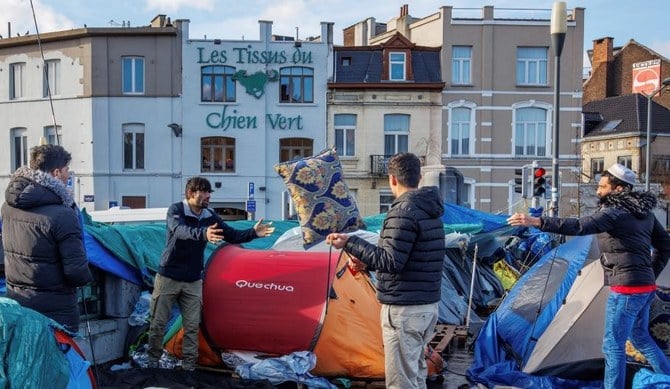
Upon his arrival in Lebanon last week, US envoy Amos Hochstein, who is mediating the maritime border dispute between Lebanon and Israel, expressed hope that new proposals by the Lebanese government could help solve the issue. “I think that it will enable negotiations to go forward,” he told Al-Hurra TV.
What is new in these negotiations is the focus on the gas field known as Karish. While Israel states that Karish is located entirely in its exclusive economic zone, Lebanon claims that part of the field is in contested waters. As a result, it must not be utilized until after the two nations have finalized the negotiations to delineate their maritime boundaries.
After he met the president of Lebanon, the speaker of the Lebanese parliament and the head of the caretaker government, the senior American diplomat said: “We’re in a delicate place to try to get the sides to narrow the gaps and get to a place where they can reach an agreement.” He added: “I think that’s crucial for Lebanon and, quite frankly, crucial for Israel.”
This could entail a shift in the Lebanese position. The negotiations faced a huge hurdle last year, when Lebanon expanded its sovereignty claim further south, extending it from a boundary identified as “Line 23” to what is known as “Line 29.” This meant the addition of about 1,400 sq km to its territorial claim, including part of the Karish oil field.
Hochstein sketched a different boundary that would commence from Line 23. Instead of being a straight line, it would take the shape of an “S.” This would move Lebanon’s water rights further north, but Beirut did not consent to such a suggestion. The progress reported in the talks between the two countries could suggest a degree of Lebanese acceptance of the American proposal.
Despite the lack of political clarity on the final status of the maritime border between Israel and Lebanon, it is obvious that the two countries want to enlist the direct involvement of the US in administering the negotiations. This way, they can shoulder Washington with as much responsibility as they can muster. In addition, both Israel and Lebanon are worried about Iran’s meddling in the issue.
They are both justified in their attitude on this latter point. Any Iranian intrusion into the question of the Israeli-Lebanese maritime problem would give Tehran the ability to exploit Lebanon even more and steal its wealth. It would also be an encroachment on Lebanon’s sovereignty. Iran, through Hezbollah, is preparing to explore for hydrocarbons in the territorial waters between Lebanon and Israel. This will be with the aim of shipping free Lebanese oil and gas to Iran.
This is the embodiment of Tehran’s policy of the theft of nations, which it pursues in all the countries it deals with. Iran is working to seize as much as it can of the 1.7 billion barrels of recoverable oil and 122 trillion cubic feet of recoverable gas estimated to be in the Levant Basin Province by the US Geological Survey in 2010. This is why Iran will cast doubt on any agreement between Israel and Lebanon over their maritime boundary.
There are several suggestions that ought to be put on the negotiating table between Lebanon and Israel. Firstly, if a deal is agreed, it has to include a precise deadline or schedule for its completion. Secondly, it has to be presented to the world as a good example of how nations can end their maritime border disputes. Thirdly, US President Joe Biden has to refer to the subject during his visit to the Middle East next month, since it would give international legitimacy to any agreement.The language of the accord has to be simple so that it can be understood by everyone. And there has to be a clause in which Lebanon and Israel commit themselves to taking possible joint action to repel any armed violation of their maritime borders. The final agreement also has to be approved by the Arab League.
Finally, the importance of the Israeli-Lebanese maritime border issue lies in how countries can build the structures and foundations of respectful coexistence even if they do not recognize each other diplomatically or officially.
Maria Maalouf is a Lebanese journalist, broadcaster, publisher and writer. She has a master’s degree in political sociology from the University of Lyon. Twitter: @bilarakib












